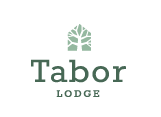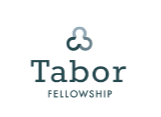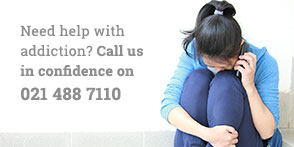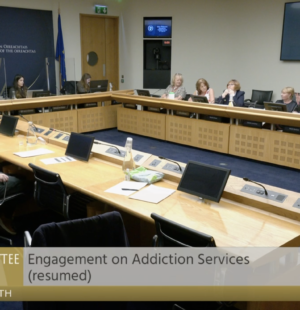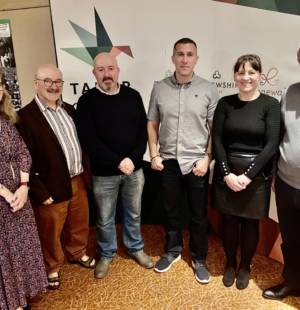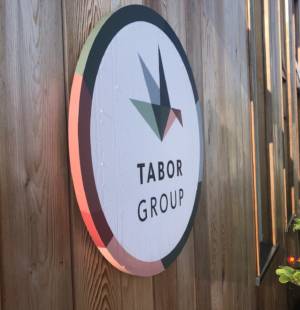How gambling can have a negative impact on your life
Over €1 billion is expected to be punted across the UK and Ireland in the coming days as the best names in jump racing fight it out at this year’s Cheltenham Festival, taking place from March 10th-13th.
It is the week that dwarfs all others in jump racing and the Cheltenham Festival is growing ever-more dominant in the minds of betting shop customers too. Its lure to one-a-year punters means that The Grand National and the Gold Cup are the top two races bet on every year.
For many, the excitement of Cheltenham makes it the highlight of the year. But for anyone with a gambling addiction, it can be one temptation too many, as the negative effects of gambling can destroy entire families.
The hidden addiction
Gambling, of course, is not just about putting a few quid on a horse. What starts as fun at the casino, a regular card game, a night out, or a lunch break scroll on an app can become a living nightmare. The endless cycle of lies, manipulation, lack of trust, remorse and all the promises to never to do it again – until the next time – will negatively impact your life forever.
This is similar to all addictions, but with gambling, you can hide it. You can’t see the gambling in their eyes, or smell it on their breath, so the problem is often only discovered in a crisis.
How gambling negatively affects the addict
Financial problems are the most obvious signs that gambling has become an addiction. It can lead to problems at work – absenteeism, decreased productivity, lack of interest – which results in job loss, huge pressure of debt and even bankruptcy. Besides losing money hand over fist, there are many other negative effects of gambling:
Mental health issues: Depression, anxiety, diminished self-esteem, increased alcohol, drugs, suicidal thoughts and even suicide.
Physical problems: Insomnia, headaches, back or neck pain, stomach upset and numerous other ailments.
Self-care: Not eating right, poor sleep habits, personal hygiene etc.
Social issues: Arguments, relationship issues, alienation, separation, divorce, physical or mental abuse.
Legal problems: Theft, fraud, arrests, criminal record and prison.
How gambling affects the family/partner
There may be so much focus on the gambler, family members may neglect themselves. There’s never any time for themselves. Friends and co-workers also pay a price. They are manipulated into lending money.
The addict puts the family in financial crisis. This is a huge burden and the negative effects of gambling can lead to ongoing debt and losing your house. Then, there’s the emotional pressure that comes with lying, covering up and making excuses for his/her behaviour. Other issues faced by the gambling addict’s partner include:
Mental health problems: Anxiety, depression, anger, resentment, embarrassment, exhaustion and self-doubt.
Physical problems: Insomnia, ulcers, digestive problems, headaches, neck and back pain and other stress-related health problems.
Self-esteem issues: Feelings of helplessness, insecurity, being overwhelmed and even feeling that they are responsible.
Relationship problems: Role reversal (children taking care of parents), partners performing all of the household tasks that they previously shared, lack of sexual and emotional intimacy. This leads to continuous arguments, loneliness, separation and divorce.
If you need help with your gambling
Seek help and take the initiative. You don’t need to go through this alone. There are thousands of others out there who are in the same situation. Start with your GP, who can recommend and refer you to appropriate treatments and services. Or give us a call at Tabor Group and we will guide you through the various options for residential treatment. With decades of experience in dealing with gambling addiction, you will be in safe and confidential hands.
Tabor Group is a leading provider of residential addiction treatment services in Ireland. We provide support and care to hundreds of clients suffering from addictions to alcohol, substances, gambling and eating disorders. For more information on Tabor Group’s services click here.
Recent Posts
- How to Help a Loved One Struggling with Addiction
- Tabor Group Calls for Urgent Funding to Address Growing Addiction Crisis
- Forgiveness in Recovery
- National Drugs Strategy launches interactive map to facilitate access to 442 publicly-funded drug treatment
- Statement from Colette Kelleher, CEO Tabor Group
Categories
Archives
- September 2024
- July 2024
- June 2024
- January 2024
- December 2023
- August 2023
- July 2023
- May 2023
- April 2023
- March 2023
- January 2023
- October 2022
- September 2022
- August 2022
- July 2022
- June 2022
- May 2022
- April 2022
- March 2022
- February 2022
- January 2022
- December 2021
- November 2021
- October 2021
- September 2021
- August 2021
- July 2021
- June 2021
- May 2021
- April 2021
- March 2021
- February 2021
- January 2021
- December 2020
- November 2020
- October 2020
- September 2020
- August 2020
- July 2020
- June 2020
- May 2020
- April 2020
- March 2020
- February 2020
- January 2020
- December 2019
- November 2019
- October 2019
- September 2019
- August 2019
- July 2019
- June 2019
- May 2019
- April 2019
- March 2019
- February 2019
- January 2019
- December 2018
- November 2018
- October 2018
- September 2018
- August 2018
- July 2018
- June 2018
- May 2018
- April 2018
- March 2018
- February 2018
- January 2018
- December 2017
- November 2017
- October 2017
- September 2017
- August 2017
- July 2017
- June 2017
- May 2017
- April 2017
- March 2017
- February 2017
- January 2017
- December 2016
- November 2016
- October 2016
- September 2016
- August 2016
- July 2016
- April 2016
- March 2016
- December 2015
- March 2015
